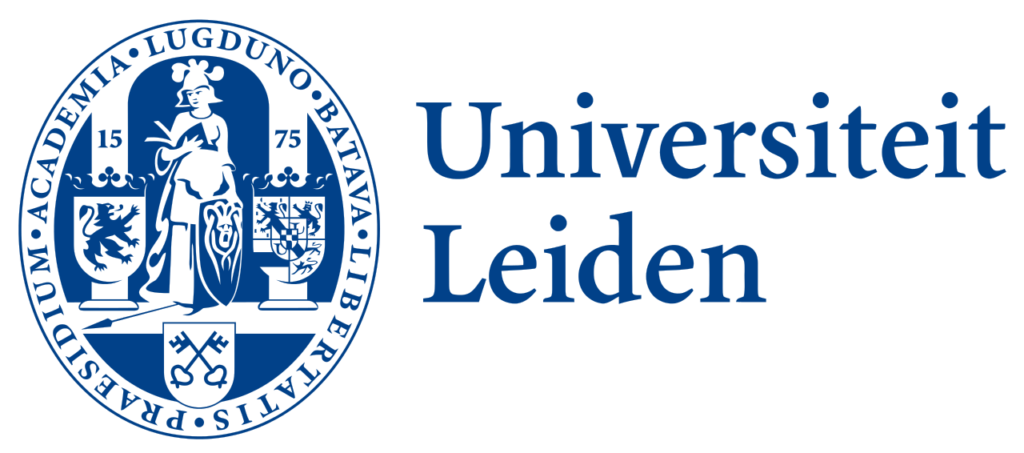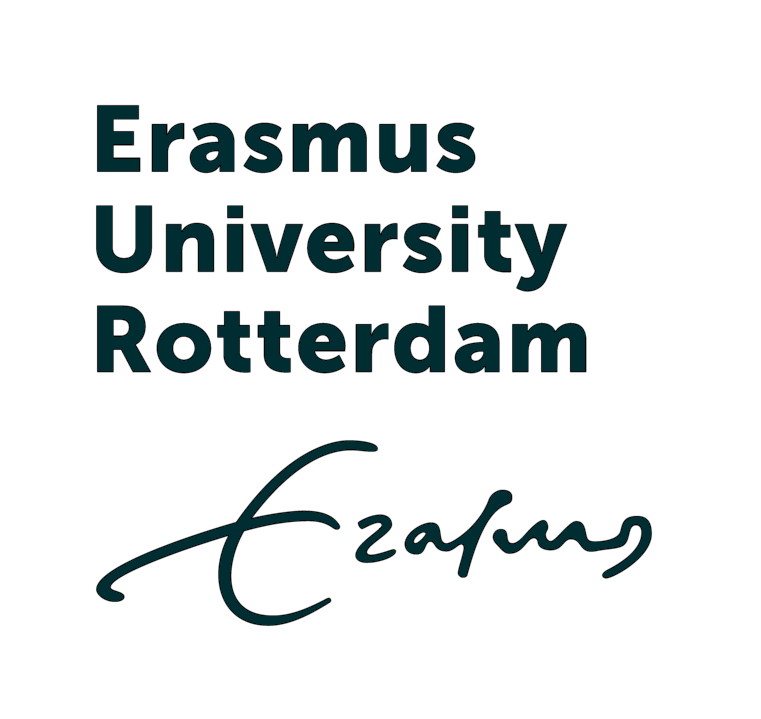Free Colleges in Germany
Get Access to Tuition-Free Higher Education in Germany
Germany has become a prime destination for international students seeking quality education without the burden of tuition fees. Public universities in Germany offer a wide range of programs, including many taught in English, appealing to students worldwide. This distinctive characteristic of the German higher education system is grounded in a belief that access to higher education should be available to all, irrespective of financial background.

For international students, this opportunity not only provides access to high-quality education, but also to the rich cultural and historical heritage of Germany. The process of enrolling in these universities involves understanding the application requirements and obtaining a residence permit. While education may be tuition-free, students are encouraged to plan for other expenses, such as living costs and health insurance, to ensure a smooth educational journey in Germany.
Key Takeaways
- German public universities offer tuition-free education for international students.
- Comprehensive programs in various fields are available in English, catering to a global student body.
- Students should consider other financial aspects and support systems available when planning their education in Germany.
Overview of German Higher Education
In Germany, the higher education system is known for providing high-quality education primarily through public universities. These institutions are predominantly funded by state governments and offer tuition-free education to domestic and EU students. They account for the majority of tertiary education establishments in the country.
The German higher education landscape comprises various types of institutions, including technical universities, universities of applied sciences, and arts colleges. These cater to a broad spectrum of academic and professional interests, offering bachelor’s, master’s, and PhD degrees.
Private universities do exist in Germany but are less common. They usually charge tuition fees and often focus on specialized areas of study. Regardless of public or private status, most universities participate in the European Higher Education Area (EHEA), which aims to ensure compatibility and quality standards across Europe.
German universities attract a significant number of international students, thanks to the quality of education and the absence of tuition fees at public institutions. Various degrees are offered, including traditional German ones as well as internationally recognized programs. The emphasis is on research and innovation, with robust support for scholarly pursuits.
Admission to universities typically relies on academic performance rather than standardized tests. Prospective students’ GPA and other relevant qualifications are considered during the application process.
The German higher education system is structured and organized to support both local and international students, making it an appealing destination for learners worldwide.
Understanding Tuition Fees in Germany

In Germany, tuition fees vary significantly between different types of universities and by the state. It is crucial for students to understand the landscape of tuition fees to make an informed decision about their education.
Public vs. Private Universities
Public universities in Germany predominantly offer tuition-free education for undergraduate students. This applies to both EU students and non-EU students, making Germany an attractive destination for higher education. In contrast, private universities generally charge tuition fees. These fees can be substantial, as private institutions are not subsidized by the state.
State of Baden-Württemberg Exception
The State of Baden-Württemberg stands out as an exception where public institutions may charge a mandatory tuition fee for international students from outside the European Union. Currently, these students face a marginal tuition fee of approximately 1,500 euros per semester.
FREE INSIDER’S GUIDE

Top 5 English-Taught Colleges in Europe
Kickstart you education abroad with a powerful degree taught entirely in English, all without taking on any student loans!
Semester Fees and Contributions
While tuition might be free at public universities, students are typically required to pay a semester fee. This fee covers administrative costs, student services, and sometimes a public transport ticket. The semester fee ranges from around 50 to 300 euros, varying by the university and the services included.
Public schools in Germany offer programs free of any tuition fees, conveying the distinct financial benefit these institutions provide. Understanding these nuances is essential when planning for an educational experience in Germany.
Programs and Degrees Offered

Germany’s tuition-free universities offer a diverse array of study programs catering to various academic interests and professional aspirations. These institutions maintain a strong focus on providing quality education across multiple disciplines.
Undergraduate Programs
Public universities in Germany present an extensive range of bachelor’s degree programs taught in English, geared toward those seeking an academic foundation in their chosen field. Available subjects cover a broad spectrum from humanities to technology, ensuring students can pursue their interests without financial constraints. Some of these bachelor programs link directly to faculty members who are active in both teaching and research, providing undergraduates with a robust educational experience.
Graduate Programs
For postgraduate education, these institutions offer both consecutive and non-consecutive master’s degree and doctoral degree programs. Many German universities are top-ranked and provide an environment conducive for advanced learning in numerous disciplines, including more specialized study programs. Graduate programs like the MPA, MBA, and L.LM are particularly recognized for their rigor and relevance to current professional standards.
Specialized and Professional Programs
Alongside traditional degree offerings, students can also find a selection of professional degree programs tailored to specialized fields. These programs often incorporate practical skills and knowledge essential for careers in industries with specific requirements. Furthermore, the innovative nature of these courses reflects Germany’s commitment to staying at the forefront of technology and specialized education.
Free Universities and Colleges in Germany
Germany offers a wealth of opportunities for higher education without tuition fees, providing students from around the world access to its esteemed education system. This section outlines key information about tuition-free higher education institutions such as the Free University of Berlin, Heidelberg University, and the Technical University of Munich.
Tuition-Free Universities
In Germany, public universities typically offer tuition-free education. With nearly 300 public universities and over 1,000 study programs available, students have a wide array of choices.
Among the notable public universities are:
- University of Cologne
- Ludwig Maximilians University Munich (LMU)
- Goethe University Frankfurt
- RWTH Aachen University
- University of Münster
- Ruhr University Bochum
- University of Duisburg-Essen
- Universität Hamburg
- University of Würzburg
This diverse range of institutions and programs allows students to explore various educational paths without tuition fees in Germany’s public university system.
Free University of Berlin
The Free University of Berlin is renowned for its research and liberal arts programs. As a public university, it does not charge tuition fees for most programs, though a nominal semester contribution is required.
Technical University of Munich
The Technical University of Munich, one of the top technical universities in the country, offers tuition-free education. Only a semester fee is charged for student services and a basic transit ticket.
Heidelberg University
Heidelberg University, known for its rigorous academic atmosphere and a prime example of German public universities, also offers tuition-free education to students, while a small semester contribution is standard practice.
Application and Enrollment
The application and enrollment for free colleges in Germany require attention to specific details, with nuances for international students. This process typically involves understanding the application requirements, navigating the enrollment process, and considering the essential steps for international students to secure their education.
Application Requirements
International students must examine the specific application requirements of their desired university. German institutions often require a recognized high school diploma or equivalent, proof of language proficiency, and, for certain programs, a minimum GPA. Students may find specific requirements in our database, which provides comprehensive information on program-specific requirements or by reaching out directly to each school.
- High school diploma or equivalent
- German language proficiency or English, depending on the program
- Minimum GPA, where applicable
Enrollment Process
Upon meeting the application prerequisites, the enrollment process begins with submitting your application, often through a unified platform such as Uni-Assist for many universities. Following acceptance, students will typically need to submit further documentation to formally enroll in the university.
- Submit application via platform (e.g. Uni-Assist)
- Receive acceptance and further instructions
- Provide necessary documentation for enrollment
International Student Considerations
For international students, additional considerations include securing a student visa and understanding the support services available through organizations such as the German Academic Exchange Service (DAAD). The DAAD provides resources and scholarships, facilitating a smoother transition into the German education system.
- Acquire a student visa for stay in Germany
- Utilize DAAD services for scholarships and information
Financial Planning for Students

Proper financial planning is essential for students studying in Germany to ensure they can cover their living expenses and enjoy a secure student life. Accurate budgeting for cost of living, understanding available scholarships and financial aid, and navigating health insurance and social services are key to a successful academic experience.
Cost of Living
Living expenses in Germany can vary depending on the city and lifestyle, but they typically include rent, food, transportation, and other essentials. On average, students may need between €850-€1,200 per month. Rent constitutes the largest portion, with student housing averaging between €250-€390 per month. Food expenses, while variable, generally require about €170 per month, and a public transport ticket is often around €55-€100.
- Rent: €250 – €390
- Food: €170
- Transportation: €55 – €100
Scholarships and Financial Aid
Germany offers a range of scholarships and financial assistance for international students, which can greatly reduce the cost of studying. Students should research and apply for opportunities well in advance, such as those highlighted in an article on tuition-free universities in Germany for international students. Scholarships can help cover not only tuition fees, which are typically waived, but also contribute towards living expenses.
- Apply for scholarships to offset living expenses
Health Insurance and Social Services
Health insurance is mandatory for all students in Germany, and they must ensure it is valid and covers their entire stay. The cost for student health insurance is approximately €80-€120 per month. Additionally, students have access to social services that can offer financial advice, counseling, and support services, aiding them in efficient financial planning.
- Health Insurance: €80 – €120
- Mandatory and must cover the full duration of stay
This section has provided a focused overview of the financial considerations students must plan for when embarking on their studies in Germany.
Student Life and Support

In Germany, where education may not come with tuition fees, students still navigate costs associated with living and integration into the local culture. From finding student accommodation to mastering the local language, the support systems in place are vast and designed to assist students in making the most of their college experience.
Accommodation
Universities in Germany often provide student housing options that are affordable and located in proximity to the campus. These residences come in various forms, including single apartments, shared flats (Wohngemeinschaften, or ‘WG’), and dormitories. Students may apply for a room through their university’s studentenwerk, an organization responsible for student affairs, which also manages university cafeterias. The monthly rent for a student room can vary, but generally, it is reasonable, and students typically require a deposit equivalent to a month’s rent.
Cultural Integration
Colleges in Germany are more than just places for academic pursuit; they are vibrant communities that offer a range of cultural activities and events. Many universities host international clubs and organize excursions aimed at helping students from abroad acclimate to German life. It’s common for students to participate in language exchange meetups or explore the country through subsidized trips provided by student organizations.
Language and Communication
While many courses are offered in English, knowledge of the German language remains an essential aspect of student life. Higher education institutions often offer language courses to help non-native speakers improve their German. Proficiency in the local language not only enhances daily communication but also deepens cultural understanding and integration. Moreover, international students typically receive a public transportation ticket, allowing them to use the robust public transportation system efficiently and explore the city and surrounding areas.
Expressing oneself clearly and integrating socially often go hand-in-hand, and as such, universities support language learning through tandem programs and access to language centers. With these offerings, students gain the confidence to navigate both academic requirements and daily interactions in the German context.
Global and European Context

Germany’s higher education system has a strong international reputation, underscored by its free colleges that attract a multitude of students from the European Union and beyond. With several institutions featuring prominently in international rankings, Germany is a linchpin in European higher education, facilitating student mobility through EU programs.
International Rankings and Reputation
German universities consistently perform well in various international rankings, underscoring their global academic prestige. The Technical University of Munich (TUM), for instance, often ranks as one of Europe’s top universities. Courses taught in English are prevalent, making these institutions attractive to international students who are fluent in English but not necessarily in German. The country’s commitment to free education even for international students without compromising on quality sets a benchmark for its neighbors and reinforces the advantageous standing of German universities on the global stage.
EU Students and Mobility Programs
For EU students, Germany’s tuition-free model offers a unique opportunity to benefit from high-quality education without the financial strain experienced in many other countries. These students often take advantage of mobility programs like Erasmus Mundus, which encourage academic exchange and foster an environment of diverse learning. This creates a dynamic educational atmosphere where students from the European Union and neighboring countries can collaborate and benefit from Germany’s robust academic resources.
Career Perspectives After Graduation
Upon graduating from free colleges in Germany, students often find themselves with competitive advantages in both the German workforce and the global job market. Their academic achievements enable them to navigate through various economic sectors, especially with Germany’s strong emphasis on specialized degree programs.
Integration into the German Workforce
Graduates with professional degrees from German universities are well-prepared to enter the robust German economy. They benefit from the country’s high regard for educational credentials, especially in cities like Berlin, which is not only the capital but also a hub for technology and innovation. The integration process is frequently streamlined for these students, as there’s a high demand for qualified professionals across a wide spectrum of specialized programs. Germany’s focus on practical skills within its degree programs equips students with the necessary expertise to thrive in the local workforce.
Opportunities in Europe and Worldwide
Armed with a German degree, graduates are not limited to the domestic job market but also sought after across Europe and worldwide. The strong economic ties that Germany has established with various countries create a myriad of opportunities for its graduates. Additionally, the reputation of German education, including that offered by private universities, stands well in international circles, often paving the way for graduates to pursue careers abroad. These academic qualifications are particularly respected in fields that demand high levels of technical proficiency and specialization.
Graduates from German institutions are equipped to leverage their education due to the universality of the skills and knowledge they acquire, which can be effectively applied in diverse professional settings internationally.
Frequently Asked Questions
Exploring the landscape of free education in Germany, international students often have a multitude of questions concerning the accessibility, requirements, and the quality of such opportunities.
What are the top-ranked public universities in Germany for international students?
Germany hosts a range of reputed public universities known for their quality education. Some of the top-ranked include the University of Cologne, recognized for its comprehensive range of programs, and others such as Ludwig Maximilian University of Munich and Heidelberg University, both highly esteemed for their research and academic excellence.
Can international students study at German universities without providing IELTS scores?
Certain German universities may allow international students to study without IELTS scores if they can prove proficiency in English through other means or if the course is taught in German. It’s advisable to check the specific requirements of each university or program.
What are the advantages and disadvantages of attending free colleges in Germany?
Attending free colleges in Germany offers advantages like minimal costs, high-quality education, and diverse study programs. However, students may encounter disadvantages such as a competitive admission process, living and ancillary expenses that are not covered, and potential language barriers.
Are there opportunities to pursue free diploma courses in Germany for international students?
Germany provides a spectrum of educational opportunities, including free diploma courses at institutions such as Universities of Applied Sciences. These courses are designed to integrate practical and theoretical learning, catering to a wide array of professional fields.
Are Master’s programs offered for free at German educational institutions?
Many public universities in Germany offer Master’s programs for free, particularly for EU students, while non-EU students may be required to pay a nominal fee. However, this varies by state and university, so checking specific universities’ policies is crucial.
What is the process for international students to study in Germany without tuition fees?
The process involves selecting a suitable university and program, confirming the absence of tuition fees, fulfilling language proficiency requirements, and arranging necessary documentation like visas. Students also need to demonstrate the financial means for living expenses while studying in Germany.

















